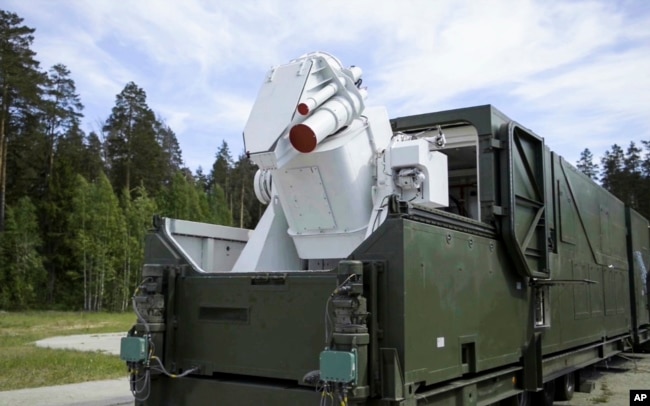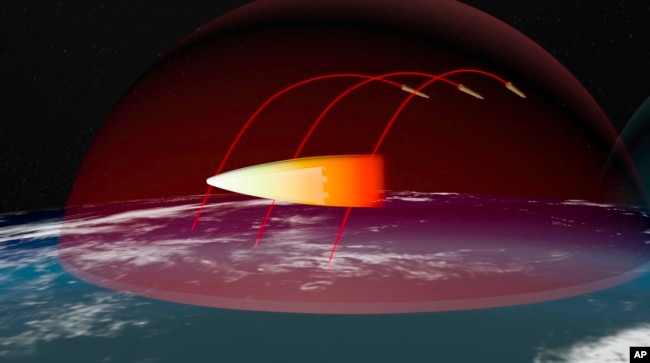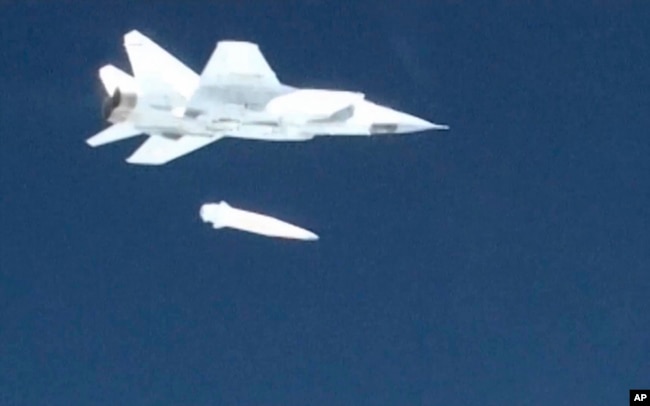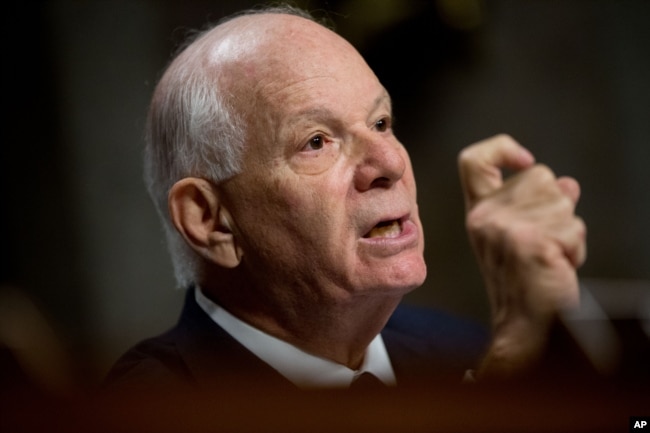The United States is brushing aside a series of claims by Russian President Vladimir Putin that he has an array of new strategic nuclear weapons that can hit a target anywhere in the world.
Both the White House and the Pentagon dismissed the talk as rhetoric Thursday, saying Russia’s attempts to modernize its nuclear force came as no surprise and would do little to rattle the U.S.
“President Putin has confirmed what the United States government has known all along,” White House press secretary Sarah Huckabee Sanders said. “Russia has been developing destabilizing weapons systems for over a decade in direct violation of its treaty obligations.”
‘We’ve been watching’
U.S. defense officials also said the Russian claims were not at all surprising.
“We’ve been watching Russia,” chief Pentagon spokeswoman Dana White told reporters Thursday. “These weapons that are discussed have been in development for a very long time.”
“The American people should rest assured we are fully prepared,” she said.
In his annual state of the nation address earlier Thursday, Putin boasted about his military’s newfound capabilities, including what he said were “invincible” nuclear weapons that could not be intercepted.
He said Russia’s technological breakthroughs could give its military new global standing and showed videos of new weapons to frequent applause during his speech.
“They have not succeeded in holding Russia back,” Putin said, in a reference to the United States and its Western allies. “Now they need to take account of a new reality.”
The Russian president said the new weapons included a nuclear-powered cruise missile, a laser weapon, a nuclear-powered underwater drone and a new hypersonic missile.
missile defense “useless.”
Not ‘real game-changers’
Still, some analysts were skeptical.
“I don’t believe they are real game-changers,” Sim Tack, chief military analyst at Belgium-based Force Analysis, told VOA via Skype.
“Putin’s announcement today was not so much an unveiling of new capabilities that nobody knew about,” he said. “It’s more of a summary of things that Russia has been working on over the past few years.”
He further claimed they had no equivalent and contended the new weapons had made NATO’s U.S.-led Tack said that eventually, some of the capabilities, like those of the hypersonic missile, might force the U.S. and NATO to change the way they approach nuclear deterrence. But he cautioned those Russian capabilities were not yet operational.
Putin said the nuclear-powered cruise missile Russia tested several months ago had a “practically unlimited” range and high speed and maneuverability that could pierce any missile defense.
He said a high-speed underwater drone also had “intercontinental” range and could carry a nuclear warhead that could be aimed at both aircraft carriers and coastal facilities. He said its speed was at least 10 times faster than that of any other vessel, making it immune to enemy intercept.
Congressional reaction
Despite such claims, U.S. lawmakers were also unimpressed.
“I view Mr. Putin like I view any murderer or criminal,” Republican Senator Thom Tillis of North Carolina told VOA. “When they say something, they’re probably lying, but you have to take it seriously.”
Senator Ben Cardin of Maryland, a senior Democrat on the Foreign Relations Committee, said, “Countries that boast about their military — there’s a reason why, because they know that their capacities are far less than what they claim to have.”
The Senate’s No. 2 Democrat, Dick Durbin of Illinois, urged a measured response from U.S. President Donald Trump.
“I hope he doesn’t come up with some outrageous adolescent tweet, for goodness’ sake,” Durbin said. “A leader of the free world, commander in chief of the United States of America, ought to take the threat of Russian aggression very seriously, in a very sober way.”
Putin spoke before the March 18 election in which he is expected to secure another six years at Russia’s helm. He said Thursday that his country had advanced far beyond the “woeful state” of its military following the breakup of the Soviet Union in 1991.




